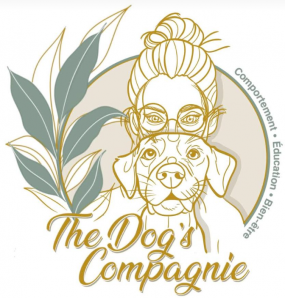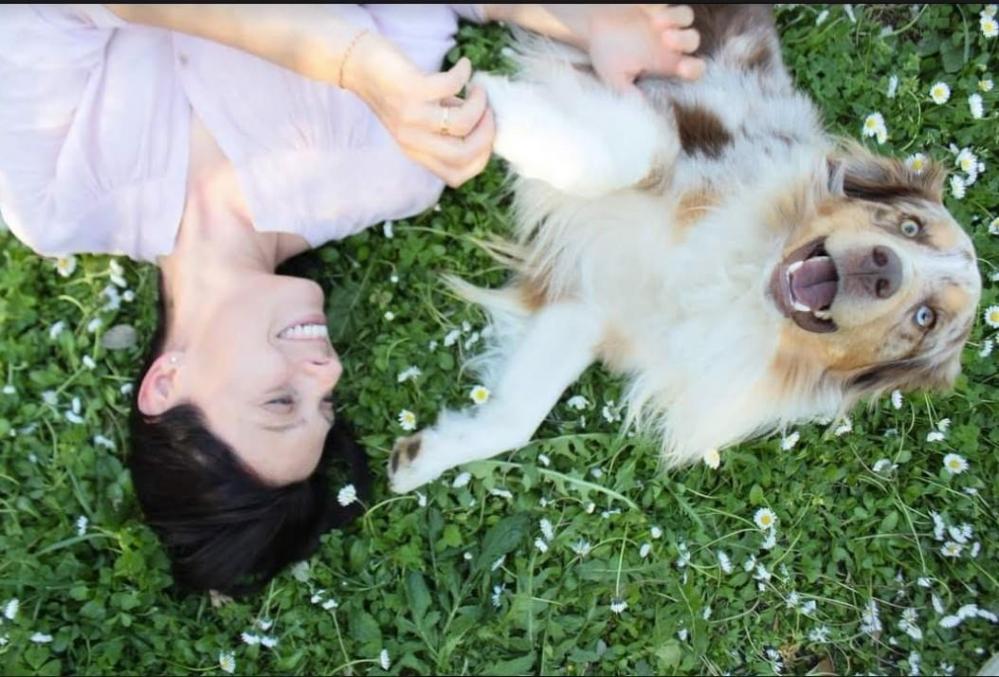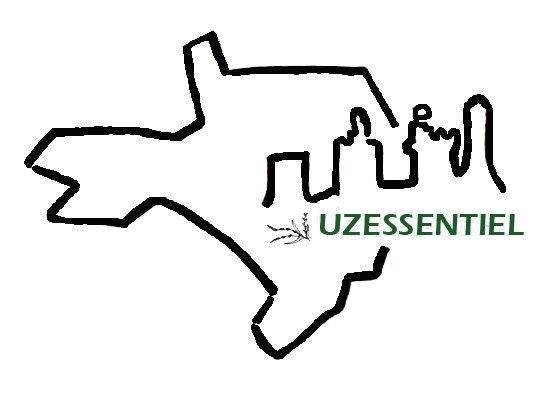Focus on dog training with Perrine Vuche from DOG'S COMPAGNIE, in Uzès (Part 1)
- Par nbesse
- Le 30/08/2024
- Dans Living in Uzès and around
FR - If the sciences relating to human behaviour are constantly evolving, so too are those concerned with our 4-legged friends.
So we met up with Perrine Vuche, founder of DOG'S COMPAGNIE in Uzès in 2010, to find out more, and invite you to follow us on this wonderful journey of discovery, with this first part devoted to the keys to good training.

THE KEYS TO DOG TRAINING
Hello Perrine,
Welcome to the pages of UzEssentiel.com,
The study of animal behaviour is just as rich as that of humans, right?
Yes, it's just as rich, but we're still far from knowing everything. I'd even go so far as to say that we're still in the early stages of understanding the animal world because, strangely enough, we've been studying wild animals for decades but our family dog for much less time. We live with them, we project a lot but, objectively, we still have a lot to learn about them.
How are you getting on in the dog training profession?
Well, in a completely natural way! I love living things, especially dogs and humans, and I've always been fascinated by the bond we share. So I started out by focusing on the medical side of things, becoming an Auxiliary Veterinarian Nurse (Auxiliaire Spécialisée Vétérinaire, ASV) in 2006, at the same time as broadening my knowledge of behavioural science.
I wore both hats until 2021 and now devote 100% of my time to my job as a dog training coach and animal behaviour consultant in Uzège.
How does a session work?
It varies from one family to the next and depending on the issues involved, but generally speaking, we start with a discussion so that I can gather information about each case and the desire of the people who contact me to evolve.
Sometimes I also ask for videos of moments in life that are causing difficulties, for example, when my presence can have an impact on my worries and therefore "distort" the observation, or when difficulties arise in contexts that we can't observe live, such as fear of thunderstorms.
In most other cases, I ask the family to behave as naturally as possible so that I can directly observe and analyse the difficulties encountered. I then work with them to develop a suitable plan of action, making changes to the environment if these are necessary to develop the relationship and to the dog's daily life, such as ensuring that his basic needs are met, as they are often ignored or forgotten.
A strategy for change is a bit like a jigsaw puzzle: there are many small pieces which, when fitted together, will shape the picture of change. No two situations are alike, because each individual is unique. There's no magic formula, just a range of possibilities, and that's what I like about this job too.
Does the attitude you adopt towards your dog also depend on its breed?
I'd say yes and no, the breed doesn't determine behaviour in the strict sense of the word, it's more individual, we have to adapt our attitude to the personality and temperament of each dog. We have to adapt our attitude to the personality and temperament of each dog. We can find very social or very timid dogs in the same breed.
After that, as far as breeds are concerned, it's obvious that they have often been selected for their usefulness and I would say today that this selection, which is often not taken into account by humans, is a source of difficulties. An unemployed working dog will pose problems at some point if the family does not invest in understanding and satisfying its basic needs. There are certain elements that cannot be ignored if the dog is to be happy and well integrated into the family and the society in which it lives.

You organise personalised courses... How are they organised and how long can they last?
Yes, at the moment I mainly organise one-to-one lessons (but this will change over the coming months).
Once we've carried out an educational assessment together, which enables us to establish the foundations and the work plan adapted to the family's desired development, we see each other approximately every 10 days, sometimes more or less. I tailor the follow-up to the family's wishes.
Outside of lessons, I remain present via a daily discussion channel if the teachers feel the need to do so. It's very important that they are never left alone, because no doubt should be left unanswered.
On average, there are 5 or 10 courses spread over 2 to 6 months.
What are the benefits for both parties?
I'd say that the first benefit is being understood if you're on the dog's side and being able to understand him better if you're on the human's side. We can't 'live well' together if we don't understand each other.
Establishing a dialogue between the animal and the human, being able to adapt and provide it with what it needs to be happy, is the key to a serene, peaceful relationship.
How long does training last between the animal's training and that of its owner?
This varies and depends on too many factors inherent in each individual. On a statistical level, I'd say that it takes a good 2 years to train an animal, as we go through many stages in life, such as adolescence if the family has opted for a puppy.
On a philosophical level, I'm more tempted to say that training lasts a lifetime because the many contexts in which we live and the different experiences and activities encourage us to continually discover and rediscover ourselves.
Thanks to Perrine Vuche for her collaboration on this article.
The right address: The Dog's compagnie. Tel: 06 26 95 33 60, Monday to Saturday, 9am to 7pm. Follow The Dog's compagnie on Instagram.






